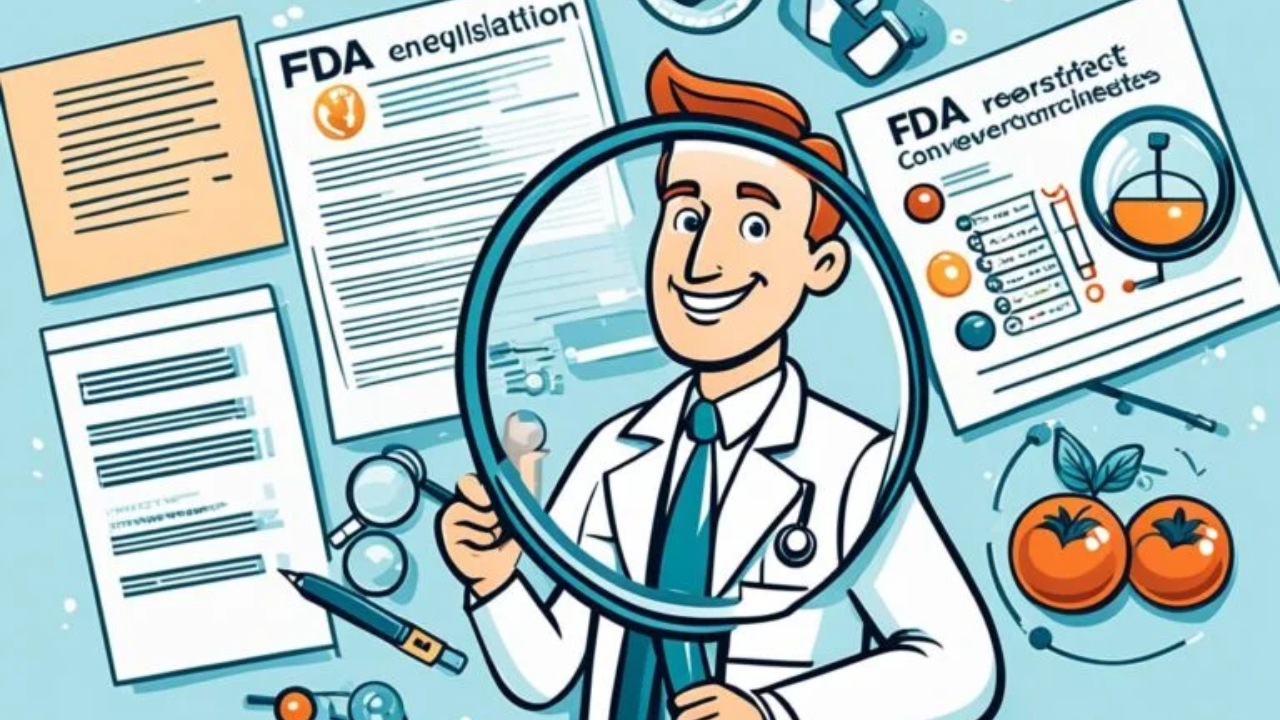The lives of consumers and their security are first priority as far as products they use and consume everyday are concerned. Between the food in the grocery store and medicine in your medicine cabinet, the U.S. Food and Drug Administration (FDA) has critical work to do to give people the assurance that these products are both safe and of high quality. The advantages of FDA regulations and the role they play in ensuring that the health of the public is well taken care of even as they improve on consumer confidence is discussed on this blog.
A Review of the FDA Regulations
Established in 1906, the FDA is a federal agency that falls under the Department of Health and Human services, which regulates food, medical devices, drugs, cosmetics, and other products through protection of the health of the citizens. This supervision deals with carrying out research, setting standards of testing of the product and interfering with the manufacturing mechanisms and other related matters as a way of taking care of the consumer safety.
Advantages of FDA
The FDA regulations have many advantages that aid the safety of a product and the general health of a country:
- Product Safety: The major goal of FDA regulations is the safety of consumers with regard to safe or potentially dangerous products. FDA has strict criteria of testing and manufacturing processes thus making products in the market to be safe to consume.
- Encouraging Accurate Labeling: The FDA regulatory regime proposes that the items should be labelled with all the required data such as the ingredients, nutritional value and even allergens. This will enable the consumer to be a well-informed consumer of the products consumed.
- Adverse Event Tracking: Another one of the roles that the FDA plays is the tracking and investigation of any reported adverse events related to products that are being controlled. The FDA ensures that some of the future violations are mitigated by ensuring that their research identifies the safety issues and acts on them to save the lives of the population.
- Fraudulent Products: The FDA strives through its regulatory authority to avoid fraudulent or misinformed product claims which may become detrimental to the consumers. This involves observation of advertisement and labelling to make sure that the products are indicated well.
- Ensuring Compliance
FDA controlled products are subject to rigid regulations and guidelines that the manufacturers must follow to the latter to succeed in producing a safe product. This also involves ensuring that Good Manufacturing Practices (GMPs) are observed with regard to food, drugs and medical devices and also to ensure that labeling and advertising requirements are followed.
Another role of the FDA is the inspection of the manufacturing facilities and possible enforcement of recalls or any other corrective measures. Lack of compliance may have severe implications on producers such as seizure of products, fines and legal suits.
On-going Research and Innovation
As well as controlling the existing products available in the market, the FDA has also the responsibility of examining new technology and innovations that could have an effect on the health of the people. This involves doing studies on up and coming ingredients or substances on food or cosmetics, as also the authorization of new medications or medical devices.
It is within this continuous process of research and evaluation that FDA can implement changes and change regulations in order to be able to stay in line with the progress of science and technology. This has maintained the continuity of products that still live up to the standard of safety with chances of innovation and industry advancements.
The Role of FDA in Public Health
There is a wide variety of the products that are regulated by the FDA; this includes food, drugs, cosmetics, and medical devices. Its mandate is to make sure that these products are safe, effective and correctly labeled to be used by consumers. Initiation of regulatory use and constant inspection allows the FDA to develop a formalized system of directing companies so as to reduce the possibility of risks on public health and support consumer information.
The positive side of FDA regulations
Shielding Consumers against Hazardous Goods
The FDA regulations are in place to check illegal products in the market with the possibility of doing injury. Harmful food and counterfeit drugs or malfunctioning medical equipment are the problems which are less likely to occur because of the quality-testing and quality-inspection requirements. This kind of monitoring minimizes the occurrence of health related emergencies at either a small or large scale and enables people to have confidence in the products, which they use in their day-to-day lives.
Advocacy of Quality Standards in Manufacturing
The manufactures are guided by very strict regulations provided by FDA of ensuring that the quality is consistent during production. Quality-assurance procedures facilitate in making sure that products attain stringent safety specification at all levels, including raw materials to last packaging. This system would reduce the mistakes during productions and it would guarantee the consumers the safe and reliable products.
Improving the Results of Public Health
Having firm regulations in terms of the vaccines, medications, and medical equipment provided, the state of public health is advanced. Good vaccines and treatments imply better prevention and management of diseases. In the absence of FDA, there is a possibility of ineffective or even harmful treatment reaching the market causing a general health challenge.
Arming Consumer Confidence
When the products comply with the FDA guidelines of labeling and advertising, consumers are in a position to make informed choices. Correct labeling is also the key to transparency whether it is nutritional values on packed food or possible side effects on medication. This openness can enable the consumers to place their trust in the products they decide on their health and those of their families.
Promoting an Innovative and Compliant Driving
Although legislation would appear to be a restriction to entry, it would even force an industry to innovate and develop solutions that resonate with the interests of public health. Regulatory standards usually have an impact on innovations regarding food security technologies, pharmaceuticals and environmentally friendly packaging. This does not only promote safety but also the industry adherence to newer decent practices.
The necessity to have the FDA regulations in day to day life.
Just think of how things could be when there is no regulatory control- the markets would have unregulated or low quality products without testing them on their effectiveness and safety. Regulations that have been put in place by the FDA provide an organized situation where companies are answerable, consumers are aware and the health of the masses is emphasized.
To industries, compliances with these regulations creates trust and reputation thereby resulting in improved positions in the market. To the consumer, it translates to guaranteed safety, quality, and the comfort in the realization that he or she is making good decisions on behalf of his or her family.
FDA Going into a Secure Future
The measures to the FDA not only promise public health security but the industries also have a standard that they can continually aim at raising the standards of safety and quality of the industry. This is a common interest between the regulating bodies, the manufactural point of view and consumers, which means a safer and trustworthy market place to all.
Well administered regulations help create a healthier community and enhance the bond between consumers and the products which they relate with on daily basis.
Conclusion
FDA works to ensure that the products that we use in our life are controlled and checked in a good manner to protect the health of the people. As a result of its control, FDA guarantees the product safety, supports accuracy of its labels, observes adverse effects, disallows counterfeit items, checks their allegiance with its inspections and recalling services, and maintains ongoing study and innovation. All these contribute in ensuring that the consumers develop confidence in the regulated products and promote the well being of everyone. To be up-to-date on the FDA regulation and its effect on the safety of a product, it is important to regularly monitor their website (https://www.fda.gov/) and subscribe to their social networks. Thus, the next time you pick up a product in the store, just remember that FDA is on the level behind the scenes, ensuring its safety, and perfection to you and your family.



